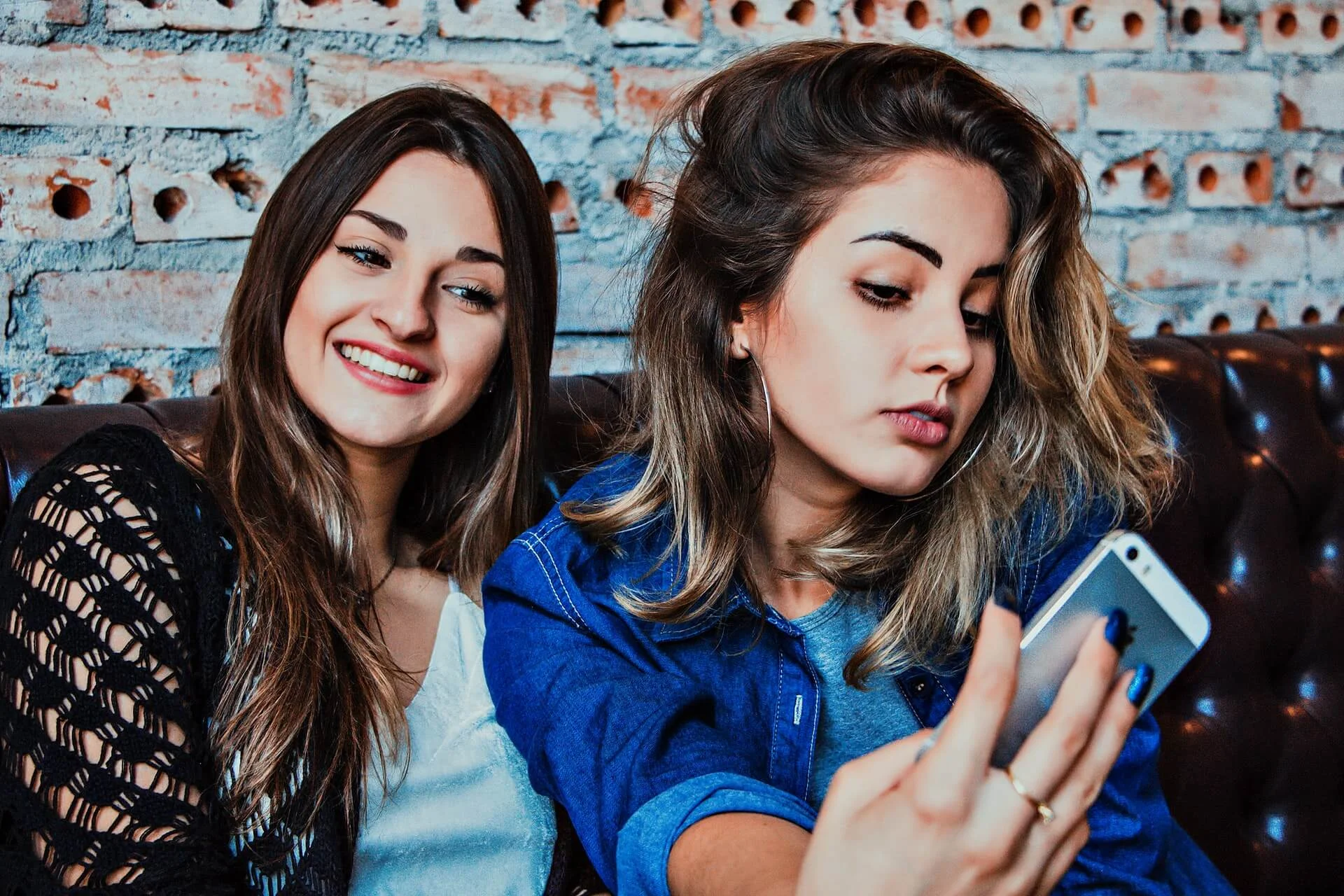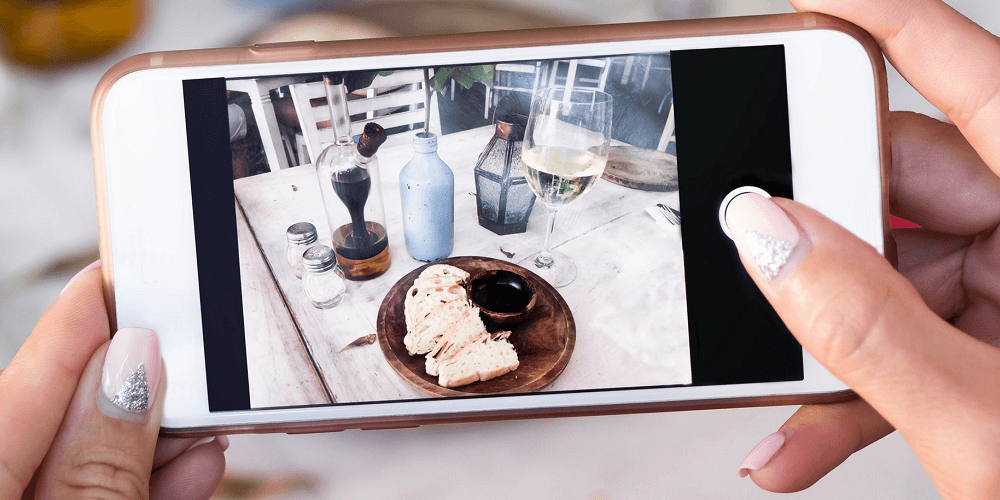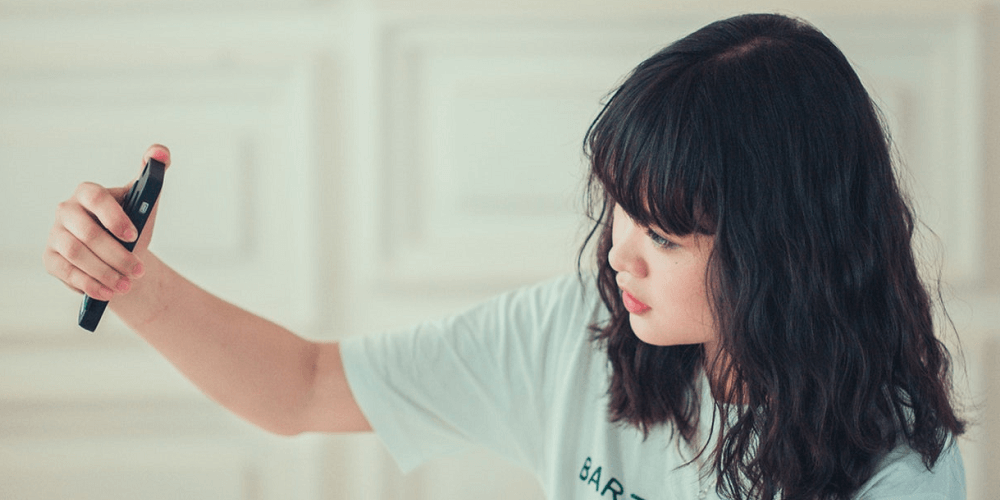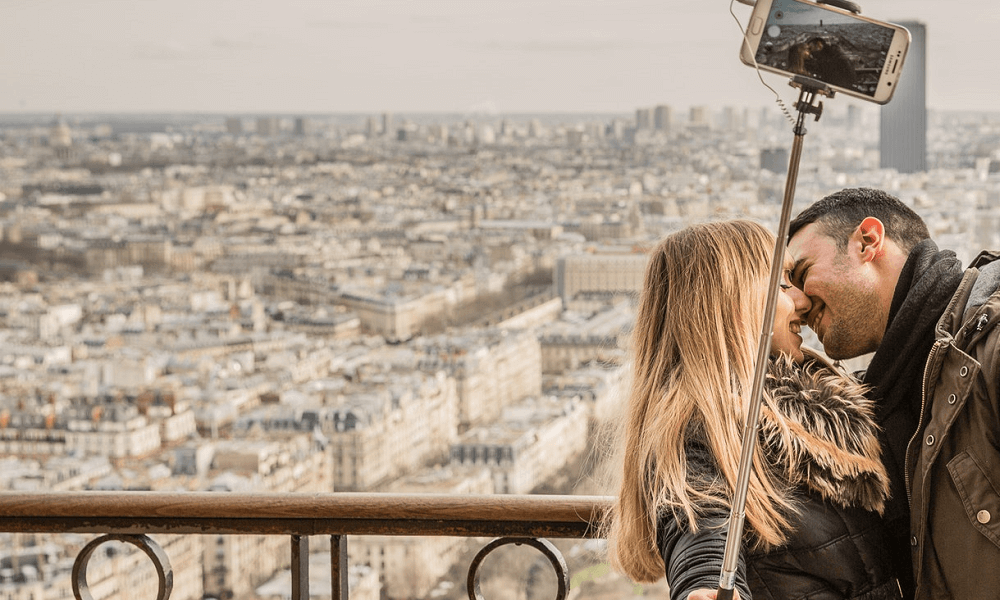It’s 8 in the morning, and your phone alarm buzzes you awake. Drifting back to the land of consciousness, you turn over to mute the damn thing and your thumb heads straight for that Facebook app.
No new notifications. Bummer. But hey – some random girl from high school (who may have very well forgotten your name) is getting married! And of course, there’s that obligatory close-up of the ring – and it looks gorgeous.
Off to Instagram. You’re instantly greeted with photo dumps of models in bikinis, your college buddies on their Euro-trip sabbaticals, and girlfriends living it up in the latest brunch hotspot.
And where are you?
You’re bed barely keeping your eyes awake, bags poking out from a long night of marathoning Stranger Things. A selfie pops up on your feed of an ordinary, yet flawless-looking girl, claiming to have ‘#wokeuplikethis’. And yet here you are, looking like the crypt keeper. What a way to start the morning.
Raise those figurative internet hands if you’ve ever found yourself in this position. I’d be surprised if you haven’t at least once – and if so, consider yourself lucky.
Social media has been both a blessing and curse for the new generation. It’s a digital revolution that’s opened countless doors of opportunity for business, relationships, and the widespread communication of new ideas.
Our world has never felt smaller, information has never felt more accessible, and the freedom of self-expression has never been more encouraged.
But of course, with the advent of life-changing technology comes its inevitable pitfalls.
In recent times, multiple studies have demonstrated the negative psychological effects one’s usage of social media can unexpectedly cause. You’d think for a seemingly fun and sociable digital space, millennials are bound to have generally positive online experiences – but these reports have shown otherwise.
It turns out that being an avid Facebook fanatic or Instagrammer can do a whole number on your mental health, and if not addressed, may cause even further psychological damage.
Below are the three major blows to one’s psyche, brought about by an overconsumption of social media:
FOMO
The scenario described above is all-too-familiar one among many of us – where we often find ourselves mindlessly scrolling through our feeds; gazing at unattainable body images, appearances, materialistic possessions, and experiences we wish we could call our own.
The term ‘FOMO’ rose to everyday prominence with the emergence of social media platforms and smartphones, a term millennials use to describe their ‘fear of missing out’.
With Instagram and Facebook bombarding you with snaps of all the latest parties, tropical islands, music festivals, and trending restaurants you’ve yet to experience for yourself, it’s hard to escape the intense feeling of FOMO.
I should be at that hot new club! I should be throwing fancy dinner parties! I should be sipping margaritas on a beach in the Bahamas!
Seeing everyone live it up in these exciting, glamorous scenarios tend to make you wonder if your lifestyle adds up. You start to wonder if you’re lagging behind on all the adventure, if everyone’s on the carpe diem train and it’s somehow missed your stop.
As a result, you begin comparing. And because most of us ordinary folk don’t (or can’t) live such razzle-dazzle lifestyles – you start feeling like shit. Black Mirror’s Emmy-nominated episode, ‘Nosedive’, wasn’t completely wrapped in fiction; much of it is disturbingly accurate to the here and now.
A study published by the journal Motivation and Emotion conducted research on a group of first-year university students, revealing how FOMO creeps up in all of us, regardless of temperamental personality traits such as neuroticism and extraversion.
Interestingly enough, the findings revealed how FOMO takes place even when the individual is already engaged in a ‘fun’, exciting activity. Researchers had asked each participant to read a person’s plans for the evening, in addition to an alternative activity, and to choose between them.
Participants always went with the planned activity. They were then reminded of the alternative, either through a friend or social media.
And yet, no matter how enjoyable their chosen activity was, high feelings of FOMO were still reported, and participants often felt negative or distracted emotions.
Additionally – the term may be a new one, though the damaging feelings associated with FOMO are likely rooted in decades of social history.
Another recent study by Cornell University researcher Sebastian Deri shows that while people tend to think of their skills, character traits, and intellect as better than they actually are – the opposite is true for how they view their social lives: we typically succumb to ‘the grass is greener’ mentality.
And if that’s the case, then the images, updates, and stories we find on social media certainly don’t help things. We’re constantly updated on what we’re missing with the tap of a finger; having us feel more depressed about our lives than ever. And if you need proof, studies have actually linked Instagram and Facebook to higher levels of anxiety and depression.
Body dissatisfaction
Celebrities, influencers, and models in all industries – namely fitness, lifestyle, and fashion – tout their perfectly-toned bodies for their millions of followers to admire with the intent of promoting body positivity, health, and wellbeing.
While the motives behind such posts are nothing malicious, research has shown that overexposure to these images are linked to declines in body satisfaction and self-esteem among young adults.
Online movements such as ‘fitspiration’, designed to promote a healthy lifestyle of ‘clean eating’, exercise, and slim bodies, have only caused the opposite effect among their target audiences.
Rather than feel inspired, many reported to feel worse about their bodies, causing them to turn to unhealthy exercise and eating habits.
It’s a definite cause for concern, but this shouldn’t be too surprising.
When you’re constantly faced with unattainably beautiful supermodels and actresses, you’re drawn towards that instinctive need to compare. Since the social media limelight flaunts these people as the prime standard of beauty – those of us who weren’t naturally born with wide hips, small waists, and perfectly sculpted facial structures are going to feel less than adequate.
Emily Bryngelson, an associate designer at Ann Taylor, shares with Elle magazine that, “Instagram makes me so anxious. I’m always looking at other women thinking, ‘I wish I looked like that’…young girls can now follow Victoria’s Secret models and see what they look like in the ‘every day.’ …That has got to make any woman, let alone a 13-year old girl, feel unsure of herself.”
Furthermore, with popular apps promoting the use of filters and photo-editing studios, individuals can now airbrush and manipulate their appearance as they please.
Nothing wrong with that on it’s own, but it’s when these clearly manipulated photos are posted on social media for people to view as actuality that the issues start popping up.
Those who fall for it are will likely feel lacking in their own image, are pressured to use similar ‘photoshopping’ tactics to conform with social norms, and the cycle continues.
The ‘like’ obsession
And finally, regular users of Facebook and Instagram know the obsessive need for us to rack up those ‘likes’.
Got a new date coming up? Or perhaps you’ve scored that job you’ve been eyeing on for the past month? Better post that on Facebook – it’s worth about 30 likes or so (and if you’re lucky, ‘heart’ and ‘wow’ reacts!).
Going to Paris, Japan, New York? Don’t forget to post those shots on both your Instagram feed and your stories – wouldn’t want to miss out on all those love hearts now, do you?
The need for this sort of social media validation is an all-too common phenomenon, and I’d be lying if I said I didn’t find myself caught in the craze.
An insightful read by Catriona Harvey-Jenner of Cosmopolitan shares an interview with psychologist Emma Kenny, who describes the whole ‘liking’ game as a ‘reward cycle’.
“It’s like a hit, similar to the way you feel when you have a drink. The social media ‘like’ trigger that reward cycle and the more you get it, the more you want it,” she explains.
Social media ‘likes’ essentially activate the same parts of the brain that light up at when being complimented, co-operated with, or merely being smiled at by someone. You feel good – almost like being ‘hugged’ – from others approving of your content.
And it doesn’t stop with positive life updates, either. Kenny also discusses how sharing the negative events in your day can be a ‘cathartic’ experience for some; having others reach out and offer their support, in ‘likes’, public comments, or personal messages.
Sadly, while ‘likes’ effectively make for positive reinforcement, a sudden lack of them can do just the opposite, taking a significant toll on one’s pride or self-esteem.
It’s even more pertinent among those struggling with self-image issues to begin with. In his interview with Grazia Daily’s Chemmie Squier, psychologist Dr. Max Blumberg states that, “if you have low self-esteem and you don’t do well on social media, you’re going to feel particularly bad. But who can honestly say that they’re so secure in this world that when they do something on social media, and it isn’t liked at all, it doesn’t eat you a little bit inside?”
We’re already bombarded with an excess of unrealistic bodies and lifestyles; now we’ve got to keep up with the virtual thumbs to prove our value, too?
I get it, it feels good to gain the approval of your peers. There’s nothing wrong with wanting or enjoying the boost of dopamine a ‘like’ gives; it’s when one starts depending on them for a better sense of self-worth, that things get concerning.
So… should we ditch social media altogether?
Absolutely not. We live in an age where social media is almost a necessity – it provides a convenient, user-friendly platform for you to keep in contact with family, friends, and professional networks.
Whether you own a business or work for one, social media is the prime tool for getting your ideas and products out in the open.
And for those who merely have something to say, social media gives them the voice to do just that.
The technology is in no way an ‘evil’ or corruptive invention; but used in all the wrong ways, and it may seem so.
To make the most of the benefits Facebook, Instagram, and other platforms have to offer, we should stick to using them for their original, intended purpose: spaces for self-expression, communication, and (actual) inspiration. We can’t change the content we’re faced with, but we can sure adjust our perceptions for a healthier outlook.
Go ahead and post that cute makeup look, outfit, or dinner you put together – not to gain 30 Instagram likes or to keep up with the Joneses (or is it Kardashians, now?), but to simply express yourself, your skills, and your creativity.
While you’re at it, surf through these platforms for sources for actual valuable information and motivation you can use in your everyday life. Not all fitness accounts, for example, are lavished with empty photos of impossibly perfect bodies; influencers like Marie Purvis and Jeanette Jenkins post their ‘fitness’ snaps with actionable health and training advice.
The ease of communication in the social media space also helps breed a strong sense of connectivity with others – whether they’re close loved ones or blooming new friendships on the opposite end of the globe.
Instead of simply peering into the virtual windows of others’ lives, desperately wishing you were in their shoes, take the time to actually interact with people on social media. Use these platforms as tools for real engagement and communication, and it can very well prevent the feelings of isolation and loneliness that social media ‘envy’ is known to cause.
In fact, those struggling with tough times may find the emotional support they need through online communities on social media. They’ll know they aren’t alone, that there are others out there who understand and could potentially help with their situation.
Above all else, treat everything you see online as warped or exaggerated depictions of reality.
No, real people don’t start their morning off with perfect hair, eyebrows, lighting, and view of Florence from their bedroom window (and if you do… well, kudos to you!).
Most, if not all images you see on Instagram or Facebook are completely staged, portraying only the best versions of users they choose to share. They’re perfectly curated representations of perfectly ordinary lives; or filtered, edited images of one’s natural appearance.
It’s all a show, really. The tropical vacations, the flawless selfies, all of it.
And the sooner we realize this, the better off our mental health would be. So quit turning to your social media feeds for that daily dose of self-validation; you won’t find any that’ll last.












